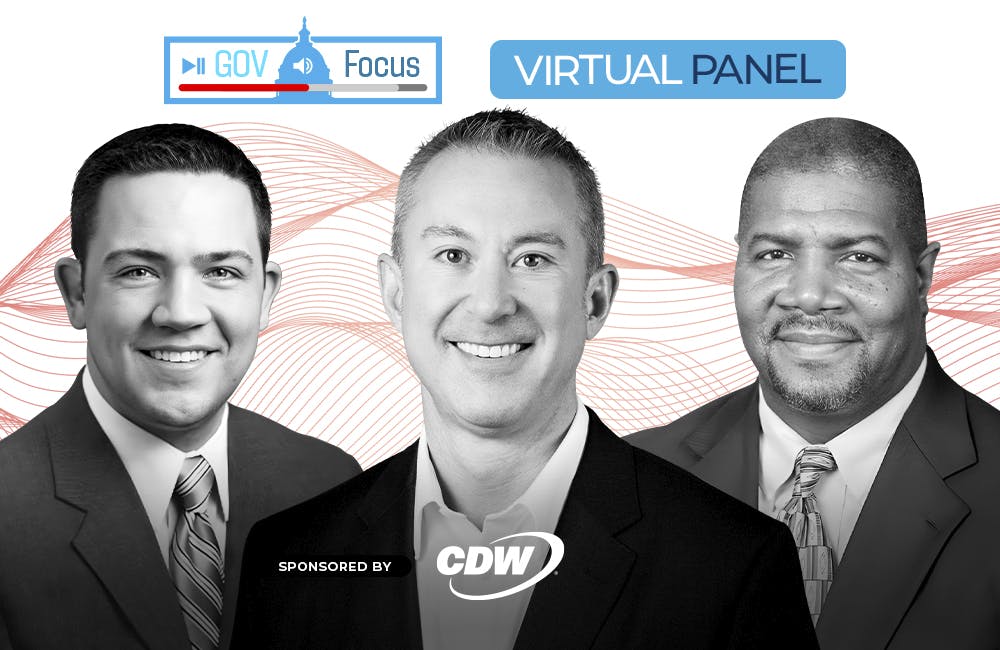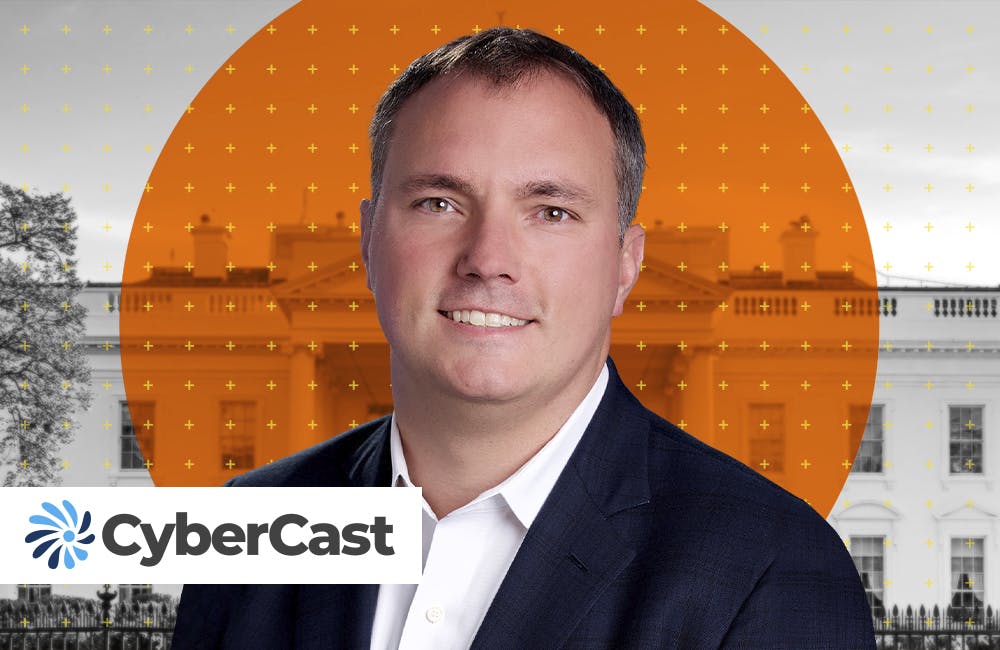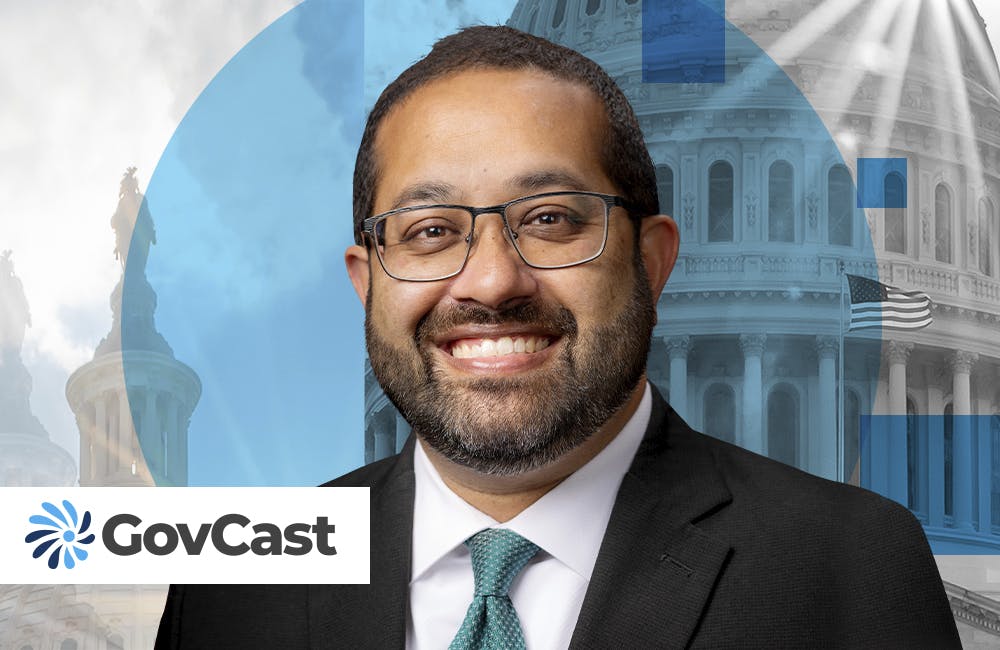How Data Can Help Make Smart, Ethical Decisions for Good Government
Leaders want to take successes in the marketing industry to help government advance its data efforts.

Data is increasingly becoming a critical component to federal and commercial activities and showing promise for impacting the public good. But strong standards around ethical data use and privacy protections are necessary to ensure total public trust in how government uses that data.
Key to building public trust around data use includes strong strategies around data aggregation, data privacy impact assessments, incorporation of ethical tenets into artificial intelligence, adopting a citizen-centric mindset and developing guardrails around what data is collected and for long it is retained, noted experts from marketing leader Acxiom.
“We believe in data for good — using data for good, whether it’s our data, the data that we’ve aggregated, whether it’s the customer’s data, just being able to use the data appropriately, ethically and compliant for the good of society,” said Acxiom Vice President of Government and Public Sector Asya Smith. “It’s using the data we have for good, within the parameters of what we can and should be doing.”
Acxiom is looking to help government agencies make use of data in actionable ways and wants to advise organizations on the most ethical use of data to accomplish agency missions.
“Data ethics is about doing the right thing, even when it’s hard, and I think our values are often reflected in our choices,” said Chief Privacy & Data Ethics Officer Jordan Abbott. “Sometimes we often make choices on the cost, the speed. But when we make decisions or choices based on that, we’re often sacrificing trust, and it’s important that we’re always building trust in our relationships.”
Acxiom has promoted this trust and ethical framework model into its partnerships with government agencies, most recently with the public COVID-19 response. Earlier this year, Acxiom partnered with leaders for Operation Warp Speed to figure out how to best distribute the COVID-19 vaccine and figure out where there are people with the most prevalent health conditions.
While this initiative required analyzing data around mass demographics, health conditions, occupations and population density, Abbott emphasized that aggregating that data ensured privacy for affected individuals.
“Using aggregated data ensures that individual consumers and their privacy are protected, and we’re always looking at ways to minimize the data that we collect and use, limit it to the amount of data necessary to achieve the business or governmental purpose,” Abbot said.
In March, Acxiom partnered with the Ad Council, the Department of Health and Human Services, the Centers for Disease Control and Prevention and the White House on a campaign to inform the public about COVID-19 and best practices to stay safe from the virus. With aggregated ethical data use, the campaign looked for avenues and different media to inform people with tailored messages that are most relevant to them.
“The messaging is different, but it’s all to combat the pandemic. This has been a huge success for the Ad Council to have significant reach,” Smith said. “The [public service announcements] have been viewed over 33 billion times.”
Of the messages posted on social media with links to CDC’s website on COVID-19, those ads have received 29 to 30 million direct clicks to the website, Smith added, emphasizing that the initiative has helped people get the right sources and information they need.
Although Acxiom and other organizations have incorporated their own ethical data use frameworks and abide by certain privacy protection regulations, Abbott advocates for a national data privacy protection law similar to the California Consumer Privacy Act or the General Data Protection Regulation to ensure consistent protection and ethical use of data nationwide.
“It would benefit consumers by providing meaningful rights such as access, correction, deletion, opt out from further sale or use. It would be uniform, not just certain citizens in a state that get protections that don’t exist in another state,” Abbott said of a national law. “It would help government by helping them focus on the bad actors and allowing them to use legislation to root out bad acts while encouraging the use of data for good.”
While Congress has yet to pass such a national data privacy protection law, the Office of Management and Budget’s Federal Data Strategy incorporates the creation of a federal data ethics framework for agencies to follow, as well as leadership around data use through this year’s formation of the Federal Chief Data Officers Council. Smith praised this initiative amid the recommendations she and Abbott made about the future of ethical data practices.
“There’s a number of new laws and regulations that recognize the need for data to be recognized as a strategic asset and for putting a chief data officer in place and an office surrounding him to actually be able to catalogue the data they have, aggregate it, make it actionable,” Smith said. “The Federal Data Strategy really focuses on ethical governance, conscious design and creating a culture around the use of data.”
As government looks to create stronger joint standards around data use, ethics and privacy protections, Smith recognized how people have become more open to providing their data to help with public health and government services amid the COVID-19 pandemic. In a recent Acxiom survey of 10,000 individuals, 3 out of 4 people agree that data benefits people if it’s managed properly and are receptive to using data to help at-risk populations. Over half said they would be willing to share their health information to stop the pandemic and future public health emergencies.
“With the pandemic, people’s attitudes and general attitudes toward data have changed,” Smith said, signaling that people are willing to share their data. It’s just a matter of ensuring their data is managed and protected properly and used in an ethical manner.
This is a carousel with manually rotating slides. Use Next and Previous buttons to navigate or jump to a slide with the slide dots
-

DOD Has a New Cyber Resiliency Assessment Program
Defense officials tout the continuous assessment feature and scalability of the new program amid increased cyber threats.
5m read -

Transitioning Systems for Modern Agency Missions
IT modernization is a constant process necessary for improving customer service, mission delivery and collaboration.
40m watch -

Cyber Resilience and Recovery Amid Evolving Cyber Threats
Data durability is a key aspect of NIST’s cybersecurity framework for public and private organizations.
21m listen -

How Tech Enables Environmental Justice at EPA
The agency wants to eliminate bias and establish new tech standards to reduce greenhouse gas emissions.
39m listen








